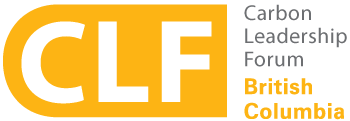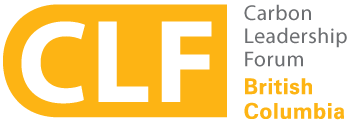The Carbon Leadership Forum historically operated under the umbrella of the University of
Washington's College of Built Environments. As of April 2024, CLF changed its organizational structure by becoming an independent nonprofit organization to double down on urgent research, education, and cross-sector collaboration that drives the data, tools, and policy changes needed to eliminate
embodied carbon from buildings a n d infrastructure.
What is the Carbon Leadership Forum?
The Carbon Leadership Forum (CLF) is accelerating the transformation of the building sector to radically reduce the embodied carbon in building materials and construction through collective action. CLF pioneers research, creates resources, fosters cross-collaboration, and incubates member-led initiatives to bring embodied carbon emissions of buildings down to zero.
The CLF network is made up of architect, engineers, contractors, material suppliers, building owners, sustainability consultants, and policymakers who care about the impact their work has on the future and are taking bold steps to decarbonize the build environment, with a keen focus on reducing embodied carbon in the structures they design and build.
What exactly is it that we do, anyway?
Promote understanding of the critical importance of whole building life cycle assessment (WBLCA) tools, and work to increase access to high-quality, trustworthy LCA data and tools.
Accelerate learning by crowdsourcing and disseminating knowledge that empowers our members.
Engage in research programs and projects designed to improve the quality and quantity of data; the methodology used to evaluate and compare that data; the tools needed to drive reduction of embodied carbon in materials, design, and construction, and the policies required to drive change.
Investigate the pathways for maximizing carbon reductions and lead collaborative research with material experts, NGOs, industry partners and policymakers.
Regional Hub Program Goals and Objectives
CLF BC is one of many Regional Hubs that advance program goals that align with the Carbon Leadership Forum's mission to reduce embodied carbon in the built environment and contribute to creating a community focused on making a meaningful impact.
Goal 1: Facilitating Community Engagement and Networking
Connect building industry professionals, organize events, and create a collaborative space for sharing expertise and resources to reduce embodied carbon in building materials, design, and construction.
Goal 2: Education and Capacity Building
Provide educational opportunities, facilitate discussions, and share resources to equip members with the skills and knowledge needed to reduce embodied carbon, through curated events like webinars, workshops, and social gatherings.
Goal 3: Inform Policies
Inform public and organizational policies on reducing embodied carbon, foster open discussions without advocating specific legislation, and share opportunities for supporting embodied carbon reduction initiatives in the built environment.
Goal 4: Collaboration and Partnerships
Work with local nonprofits, CLF Network initiatives, and industry stakeholders to integrate embodied carbon reduction efforts into larger events, foster partnerships, and emphasize equitable access to resources and opportunities for underrepresented groups.
Goal 5: Knowledge-Sharing and Dissemination
Share knowledge and resources o n embodied carbon reduction through presentations, online platforms, conferences, and educational materials like webinars, to reach a broad audience.
Join the Online CLF Community
The CLF Community online platform brings together thousands of professionals from across the building industry, from over 30 countries and 100 cities around the world.
CLF Local Hubs
CLF British Columbia has inspired 25+ cities worldwide to start up local hubs.


